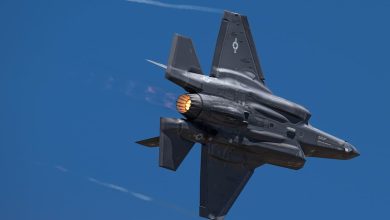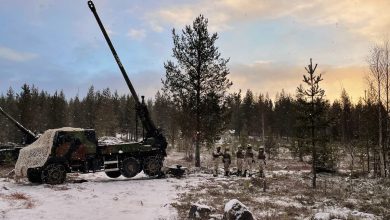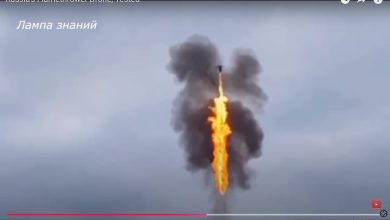EU opens defense innovation hub in Kyiv to boost industry outreach

PARIS — The European Union officially opened its defense-innovation office in Kyiv earlier this month, as the bloc seeks to boost cooperation between the Ukrainian and European defense industries.
The office is part of Europe’s defense industrial strategy adopted in March, and one role will be connecting the bloc’s startups and innovators with Ukraine’s defense industry and armed forces, the European Commission said in a statement on Friday. The office also aims to strengthen Ukraine’s integration into the European defense-equipment market.
The office may help Ukrainian defense firms and startups gain access to EU funding as they develop military technology to help the country fight off Russia’s invasion, with financing one of the main hurdles to ramping up Ukraine’s weapon production. For EU defense firms and startups, the hub in Kyiv may help them tap into Ukraine’s battlefield experience and find partners in a country at the cutting edge of military drone development.
Ukraine has become a world leader in drone technology, with annual production capacity of up to 3 million drones, the country’s Minister of Defence Rustem Umerov said in a Sept. 20 post on Facebook, on the occasion of the innovation office opening.
European drone makers haven’t waited for the EU office to establish their footprint in Ukraine, with Latvia’s Atlas Aerospace setting up an R&D office in Kyiv last year and Germany’s Quantum Systems opening a factory and a development hub in the country in April.
Ukraine has more than 1,100 innovators in defense technology, including more than 500 working on unmanned aerial vehicles, more than 160 developers of robots, at least 150 firms working on AI applications and more than 110 on electronic-warfare tools, according to Brave1, a defense-tech collaboration platform set up by the Ukrainian government.
The country is holding a defense-tech investment summit in Kyiv later this week to court international investors, bringing together officials, military and manufacturers. The summit is probably one of the few such events to advertise the availability of “safe and fully equipped shelters” available across the city to ensure the well-being of attendees, as the Ukrainian capital continues to face a threat of Russian missile attacks.
The EU in December already opened an office in Kyiv for its research and innovation program Horizon Europe, which at that time had been funding more than 120 projects in Ukraine.
Separately, Denmark on Monday announced plans to set up a defense-industry hub in Kyiv, saying that will strengthen the opportunity for Danish companies to cooperate more directly with Ukraine’s defense firms. The hub is expected to be up and running before the end of the year, the Danish Defence Ministry said in a statement.
“The situation in Ukraine clearly shows that wars are not only won on the battlefield, but to a large extent also in industry,” Danish Minister for Industry and Business Morten Bødskov was quoted as saying in the statement. “With the new hub, we are laying the stepping stones for new development cooperation and increased trade, so that Denmark can continue to contribute to Ukraine’s fight for freedom.”
Meanwhile, Denmark placed an order with Rheinmetall for 16 of the company’s Skyranger 30 mobile air-defense turrets and ammunition for more than €100 million ($112 million). The turrets are scheduled for delivery in 2027 and 2028, with additional vehicle equipment for an 8-wheeled platform that will be used by the Danish armed forces, the company said in a statement on Monday.
The Skyranger turret with its 30mm revolver cannon and airburst munitions is “particularly suitable” to counter drones, according to Rheinmetall. The Danish order follows a first purchase by Austria, with Germany’s Bundeswehr also buying the system, the company said. For the Bundeswehr, the Skyranger will take the role previously filled by the Gepard air-defense systems, which had already been taken out of the Germany inventory before being sent to Ukraine.
Rudy Ruitenberg is a Europe correspondent for Defense News. He started his career at Bloomberg News and has experience reporting on technology, commodity markets and politics.
Read the full article here






